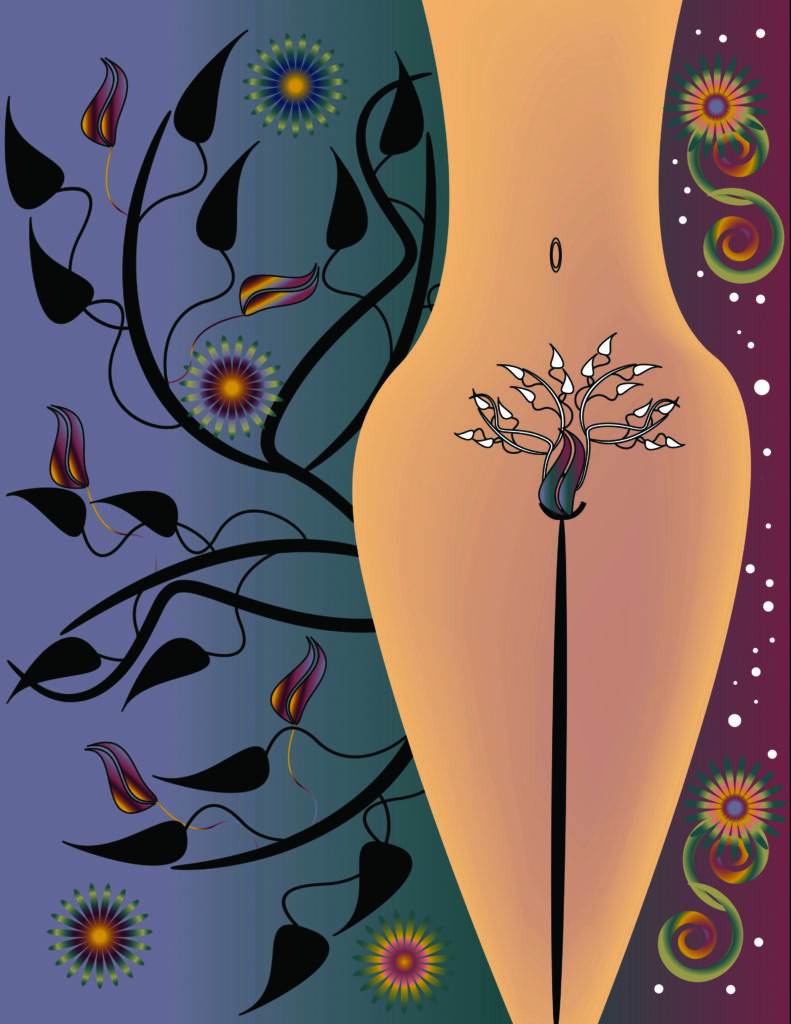BY SHERRY ROSS
Vajaja, Kitty Cat, Cha Cha, Punani, Snatch, Juice Box, Muff, Red Sea. Have you ever wondered why we give our vaginas nicknames?
A study of 1,000 women showed that 65% were uncomfortable saying the words vagina and vulva, and 40% used code names to refer to their vaginas. Honestly, I find some of the nicknames harder to say than the V-word.
As recently as 2012, a bill was presented on the House floor seeking to regulate the use of the word vagina after Michigan representative Lisa Brown was banned from speaking because she used the term in a debate over an anti-abortion bill. Vagina Gate was born. Representative Mike Callton said, “Brown’s comment was so offensive, I don’t even want to say it in front of women. . . . I would not say that in mixed company.”
Really? A ban on a word that is, technically, a medical term, and which also, in a larger sense, defines women? If this isn’t a deliberate suppression of women, then I don’t know what is.
Aside from the fact that many women are uncomfortable with the word vagina, a shocking 45% of women never talk about their vaginal health with anyone—not even their doctor.
I realize that, as an ob-gyn, my patients represent the 55% of women who do talk about their vaginas, at least behind the closed door of my examining room, but the fact that almost one in two women are not having this conversation is keeping me up nights.
The other sad truth is―aside from many women being unfamiliar with their own vaginas―a study of college students revealed that 62% were unable to locate their vagina correctly. The good news was, 73% were able
to find their clitoris! The bad news is 56% of men in this study were unable to identify the clitoris on a diagram.
A lot of women don’t like their vaginas. One in seven women have considered getting “labiaplasty,” which basically is trimming and tucking the lips of the vagina and tightening up the entrance. Many women (one in five) admit that they compare their vaginas to those seen in porn. That statistic makes me cringe!
You know the saying “No two snowflakes are exactly alike?” Well, the expression could just as easily refer to vaginas. There is no one right way for a vagina to look, which also means there’s no such thing as a perfect one.

The labia, or lips, seem to be under the greatest scrutiny by my patients. Recently, a patient tearfully confided that her boyfriend told her she had plus-size lips compared to others he’d seen online, and that she really needed a more sexy-looking cooch. The fact is, just as our eyes are not identical, nor our ears or breasts, the lips of our labia are neither identical nor symmetrical. Nor are a man’s testicles, but we don’t comment on how pretty a man’s balls are, do we?
Shockingly, 50% of women wonder if their vagina is normal looking. You know what’s normal? Different is normal. Women are in search of the perfect vagina. The only qualities that make a vagina “perfect” are personal confidence and good health.
You know what else is normal? It’s normal for women to be curious about the wonders of the vagina―everything from its smell and taste to its care and maintenance, from masturbation, orgasm, and female sexual dysfunction to gender equality in the bedroom!
The vagina revolution is a metaphor for women’s need to talk about their healthcare issues, issues that are so often ignored. There are very few places where women feel comfortable talking about their vaginas without feeling judged, so at the very least, a doctor’s office should be a bastion of comfort. Unfortunately, this is usually not the case. In the blink of an eye the visit and conversation are over. Wham, bam, thank you, ma’am!
There are so many issues that women need to discuss about their healthcare that have nothing to do with pap smears, periods, and yeast infections. Aside from the sensitive issues of painful sex, inability to orgasm, vaginal dryness with sex, and vagina insecurity, there are the difficult subjects of depression, anxiety, and hormone imbalance.
All of this has led me to wonder why we’re so squeamish about the term vagina and what we can do to reclaim the word and take back our bodies for our health, pleasure, and sense of personal power. I’m talking about an uprising here, ladies! I’m talking about empowering ourselves to talk about our vaginas among ourselves and with our healthcare providers.
Some call me the Vagina Activist or the Vagina Whisperer. Others call me outspoken. My kids call me embarrassing. But whatever the label, I am here to empower you to talk about your bodies. I do have a vagina agenda. It includes taking control of your health and wellbeing and challenging yourself and others to change the narrative on our health care.
So as friends, as leaders, as individuals, as mothers and daughters we must help to shape the conversation around vaginas. So go ahead, call it whatever you want: Hoo-Ha, Jewel Box, Happy Valley, La La, Love-Box, The Promised Land, or even Pussy! But here’s the core issue: we need to talk about vaginas.
It’s time to feel courageous. The Vagina Revolution has begun! Viva la revolución!
Dr. Sherry Ross is a practicing and award-winning ob-gyn, author, women’s health expert, entrepreneur, speaker, educator, and advocate in her field. She is the author of She-ology: The Definitive Guide to Women’s Intimate Health. Period. and cofounder of Cycl, the first-of-itskind wellness brand for women, by women. DrSherry.com